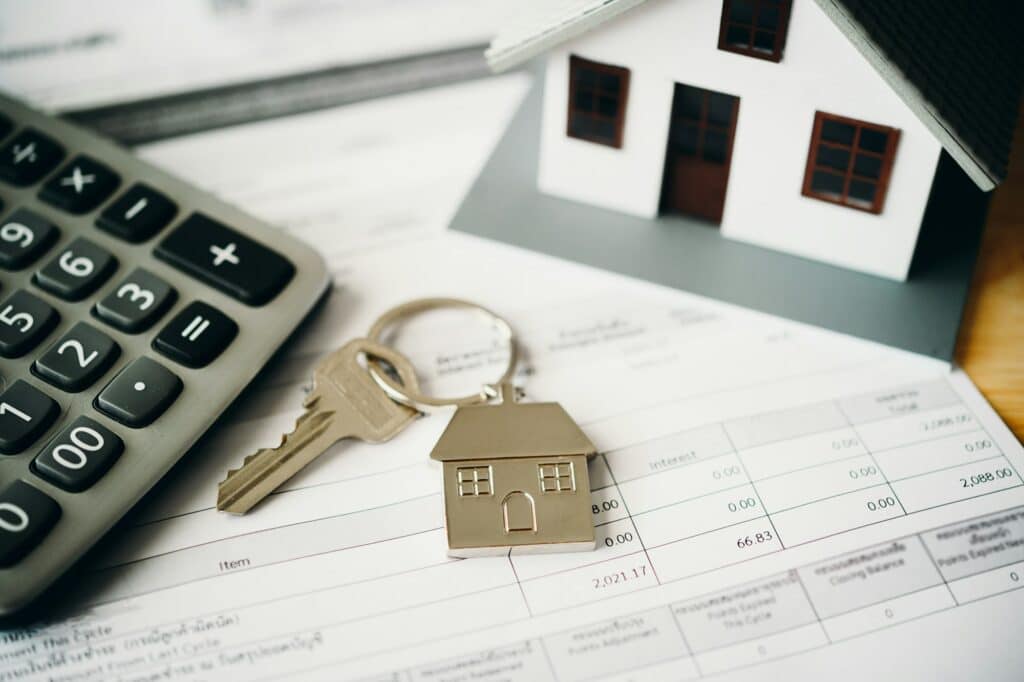Buying a home in Richmond, Virginia, can be an exciting yet challenging experience. With its rich history, diverse neighborhoods, and vibrant cultural scene, Richmond has something to offer everyone. However, navigating the real estate market can be daunting, especially for first-time homebuyers. In this blog, we will guide you through everything you need to know about buying a home in Richmond, from understanding the local market trends to choosing the right neighborhood that suits your lifestyle and budget.
The Steps to Buying a Home
Before diving into the house-hunting process, it’s essential to understand the steps involved in buying a home. Each stage comes with its own set of considerations and decisions, from establishing your budget and saving for a down payment to finally closing on your new home. This section will guide you through these steps, providing crucial information to ensure you navigate the process smoothly and confidently.
Budget & Save
Budgeting and saving is one of the first and most crucial steps to buying a home. This involves taking a comprehensive look at your current financial situation to determine how much you can realistically afford to spend on a house. You need to consider various factors, including your monthly income, existing debts, and living expenses.
Once you have a clear picture of your finances, you can figure out how much you can set aside for your future home. It’s important to consider not only the upfront cost of the house but also the ongoing costs such as home insurance, property taxes, utility bills, and routine maintenance. These costs can add up significantly over time, and factoring them into your budget can prevent financial stress down the line.
Next, you need to start saving for a down payment. This is typically between 10 to 20 percent of the home’s purchase price. The larger the down payment you can make, the smaller your mortgage loan will be, resulting in lower monthly payments. Therefore, it’s beneficial to save as much as you can for the down payment.
Apart from the down payment, there are also closing costs to consider. These are fees associated with finalizing a mortgage, typically ranging from 2 to 5 percent of the loan amount. Setting a budget and saving early can seem like a daunting task, but it’s a necessary one. It prepares you financially and gives you confidence when negotiating a mortgage. It’s a step that lays the foundation for your journey to homeownership, ensuring you’re in a stronger position when it’s time to make a significant investment.
Shop Around for a Loan & Get Pre-Approved
The next step when buying a home is to shop around for a loan and get pre-approved. This involves meeting with several lenders, comparing their mortgage terms and rates, and determining which one best fits your financial situation and home-buying goals. Once you’ve chosen a lender, you’ll need to get pre-approved for a loan. The pre-approval process involves the lender checking your credit, income, assets, and debts to determine how much they’re willing to lend you. With a pre-approval letter in hand, you’ll have a clear idea of your budget, and sellers will see you as a serious buyer.
Decide What You Want & Need in a House

After securing your loan pre-approval, the next step in buying a home is deciding what you want and need in a house. Start by making a list of your non-negotiables, such as the number of bedrooms, the size of the backyard, or proximity to schools or workplaces. Consider your future plans and lifestyle when making this list. For instance, you might need extra rooms if you plan to grow your family or work from home. It’s also important to consider the type of home that suits your preference, be it a single-family home, a townhouse, or a condominium. Balancing your wants and needs can be challenging, but it is a crucial part of home-buying. This step will guide your house hunting and help ensure that the home you buy will suit your lifestyle and needs in the long term.
Find a Real Estate Agent
Finding the perfect real estate agent is one of the most crucial parts of buying a home. This step must be considered as it can significantly influence the overall home-buying experience. An experienced and reliable real estate agent guides you through the often complex and daunting real estate landscape. They offer invaluable insights into the local real estate market, informing you about the latest trends, property values, and opportunities aligning with your preferences and budget.
An ideal real estate agent is not just a salesperson but also an advocate and advisor. They work tirelessly to ensure that you find a home that perfectly suits your needs, lifestyle, and budget, taking into account factors such as neighborhood safety, proximity to amenities, school districts, and more.
When choosing an agent, it’s crucial to find someone who is not only knowledgeable about the area you’re interested in but also listens to your needs, understands your preferences, and respects your budget constraints. An agent with a proven track record of successful transactions and positive client feedback can ensure a successful purchase process.
Start House Hunting
The next step in buying a home is to start house hunting. With your budget, loan pre-approval, and a list of your wants and needs at hand, you’re now ready to begin your search for your dream home. During this stage, you’ll visit various houses, assess them according to your list of criteria, and compare their prices. House hunting can be a lengthy and sometimes exhausting, but remember that patience is key. Take your time to explore different neighborhoods, visit multiple houses, and don’t rush the decision. Remember, your real estate agent is there to assist you throughout this process, providing guidance, insights, and advice to help you find a home that fits your preferences and budget.
Make an Offer
Once you have found the perfect house, the next step in buying a home is to make an offer. This is a formal proposal to buy the property and includes the price you are willing to pay, which may be below or above the asking price, depending on the market conditions and the value you perceive. Your real estate agent will guide you in making a reasonable offer, taking into consideration recent sales of comparable homes in the area, the condition of the house, and your budget. The offer may also include contingencies, such as the home passing a professional inspection. Making an offer can be nerve-wracking, but it’s a crucial step in the home-buying process.
Enter Into a Contract
After your offer has been accepted, the next step in buying a home is to enter into a contract. This contract, also known as a purchase agreement, outlines the terms and conditions of the sale. It includes details such as the agreed-upon price, the closing date, and any contingencies that must be met before the sale is finalized. This contract legally binds both parties to the transaction, so it’s essential to thoroughly review and understand it before signing. And there are a few other important parts that go into entering into this contract.

Finalize Your Loan
Finalizing your loan is a crucial part of the contract stage. Once your offer is accepted and you have a purchase agreement, you return to your chosen lender to finish the mortgage process. This usually involves providing additional documentation about your finances and the property, a title search conducted by the lender, and an appraisal to confirm the home’s value. Your lender will then work on underwriting the loan, which includes verifying your income, assets, employment, and credit history. Once the loan is approved, you will know the exact amount you’ll be borrowing, the interest rate, the terms of the loan, and the size of your monthly payments. Ensuring everything is in order and understood before you complete this step is highly recommended.
Get Title Insurance
Getting title insurance is an integral part of the contract stage when buying a home. Title insurance is a form of indemnity insurance that protects you and the lender from financial loss sustained from defects in a title to a property. It covers claims arising from issues before you bought the property and any outstanding liens or taxes. By obtaining title insurance when purchasing a home, you can protect yourself from potential ownership disputes and ensure a smooth and secure property transaction.
Schedule Your Home Inspection
Scheduling a home inspection is another crucial part of the contract phase when buying a home. During this process, a qualified inspector will thoroughly examine the property for any potential issues such as structural damage, roof leaks, plumbing issues, or electrical problems. This is an essential step in buying a home as it can reveal any hidden problems that could lead to expensive repairs in the future. The home inspection results can also be used to negotiate for repairs or a lower price before the sale is finalized. Conducting a thorough home inspection ensures you’re making a sound investment in your new home.
Obtain Home Insurance
Obtaining home insurance is an imperative step during the contract stage when buying a home. Home insurance provides coverage for your new home’s structure and personal belongings in case of damage or theft. It also offers liability coverage if someone is injured on your property. Lenders typically require home insurance to protect their investment, and it needs to be in place by the time you close on your home. It’s important to shop around, compare different insurance providers, and choose a policy that suits your needs and budget. Remember that factors such as the home’s age, location, and construction type can influence the cost of insurance. By securing home insurance, you protect your investment and gain peace of mind as you transition into homeownership.
Purchase a Home Warranty
Purchasing a home warranty is a worthwhile consideration when buying a home. A home warranty is a service contract that covers repairing or replacing important home system components and appliances that may break down over time. This includes items such as your HVAC system, electrical system, plumbing, and major appliances. A home warranty can provide peace of mind, knowing that if something in your home breaks or malfunctions, it can be quickly and affordably repaired or replaced. However, it’s important to read the home warranty contract carefully to understand what is and isn’t covered before making the purchase.
Closing

The final step in buying a home is the closing process. Also known as settlement, this is when the property’s ownership is officially transferred from the seller to you, the buyer. You’ll sign all the necessary documents during the closing, finalize your mortgage, and pay any closing costs. You’ll also receive the keys to your new home. It’s important to review all documents carefully and ask any questions you may have before signing. Once the closing process is completed, congratulations are in order – you are now a homeowner!
Buying a home With the Help of Honey Tree Realty
Buying a home is a significant milestone that comes with numerous considerations and decisions. But you don’t have to navigate this journey alone. Honey Tree Realty is here to provide expert guidance and dedicated support throughout the home-buying process. Our team of experienced real estate professionals is committed to helping you find your dream home in Richmond, Virginia. From understanding your budget and needs to negotiating the best deal, we’ll be there every step of the way to ensure a smooth and successful home buying experience. If you’re ready to embark on your home-buying journey, contact Honey Tree Realty today. Let us help turn your dream of homeownership in Richmond into reality.